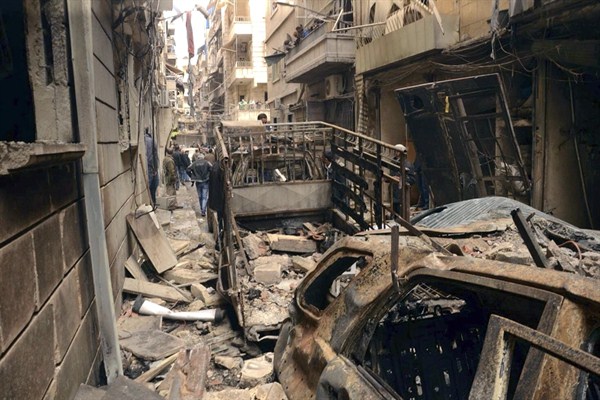The world has done a dreadful job of managing the civil war in Syria. Could it do any better at rebuilding peace there, if and when hostilities eventually slow down?
This prospect still seems sadly remote. The Syrian government indicated last week that it is still not ready for new peace talks led by the United Nations. Yet there are signs that the regime is getting nervous. President Bashar al-Assad admitted this weekend that his army is depleted and has deliberately withdrawn from some battlefronts. In the event of a series of further defeats, the regime could yet conclude that it is better to negotiate while it holds Damascus and other key cities rather than struggle on.
The recent rapprochement between the U.S. and Assad’s main allies, Iran and Russia, over Tehran’s nuclear program provides a potential diplomatic framework for facilitating a deal with Damascus. The three powers share a common sense of urgency about the need to focus on fighting the so-called Islamic State (IS).

